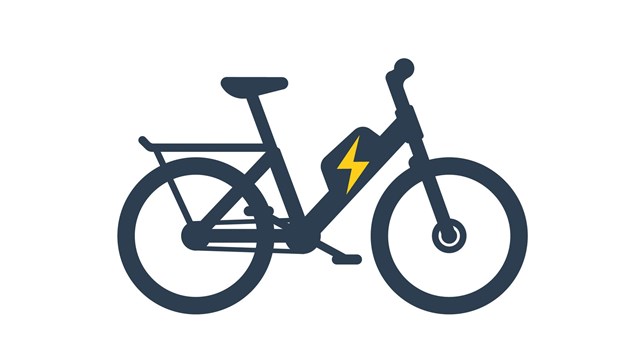Whether you live in a gated or non-gated community in the New Jersey suburbs or the city, your home should be a safe-haven and sanctuary in which you can feel secure and protected from crime and other threats. So when it comes to the community you live in, what is being done to make your surroundings and neighborhood a safer, more secure place to live? Association residents, board members, and managers must work together to ensure that your community is safe, and residents' safety, property, and peace of mind are well in hand.
Security Starts at Home
It's a common misconception that suburban communities and developments are immune to the kind of crime that concerns people living in more concentrated urban areas. While certain types of street crime may be less common outside of the inner city, there are plenty of reasons to stay vigilant, even in quiet cul-de-sacs and gated communities. According to one neighborhood watch report from a condo development just outside Philadelphia, "Suburban and rural crime is now growing at more rapid rate than urban crime. The most common suburban crimes are property crimes such as burglary, thefts, and vandalism."
The report goes on to say that the main challenges of keeping association communities safe and secure are the distance between homes or units in some developments—which can make it harder to observe a neighbor's property—and the a larger geographic areas local police must patrol, which sometimes makes quick response time more difficult.
Another problem, says Maria Gonzalez, vice president of Nortronics Corp. in Fairview—a company specializing in security systems for both high-rise and low-rise condo developments—is boards' and managing agents' apathy toward developing proactive security policies. Perhaps because of the false sense of security a privacy fence or gate may give residents and board members, many boards wait to implement security measures until after something has happened—after a spate of mailbox bashings, or after the third home has been broken into.
"Most of the security issues are brought to light by associations after an incident," says Gonzalez. "Normally when we are contacted by an association, it's because they realize they have gaps in their security; especially if an incident has just taken place."
How a homeowner association (HOA) decides what the best way to make their community safer is will depend on both the community's financial resources and the commitment of the homeowners, management, and board. Ultimately, the security program an HOA adopts is based on what is affordable. The best option is to use a combination of technologies, services, programs and guidelines in order to get the biggest bang for the buck in terms of security versus dollars spent.
The Technology Approach
Regardless of whether an association is gated or not, it is a good idea to encourage individual homeowners to invest in a security system for their home. Although a security system does not guarantee that an association member will not be a victim of an attempted break-in or burglary, it does serve as a persuasive deterrent.
"Electronic security systems provide another layer of security," says Ann Lindstrom, corporate communications director for ADT, a national security firm based in Boca Raton, Florida and specializing in alarm and monitoring systems. "Burglary is a crime of opportunity—criminals seek the path of least resistance. If a burglar is presented with two homes, one with an electronic security system and the other without, the house with the security alarm system is less likely to be burglarized."
According to the National Burglar & Fire Alarm Association (NBFAA), depending on the value of the property, homes without security systems are about 3 times more likely to be broken into than homes with security systems—and losses due to burglary average $400 less in residences with security systems than for a residence without security systems. More information on alarm systems and other technological deterrents can be found at the NBFAA's website, www.alarm.org.
Individual home security systems offer benefits to elderly homeowners as well. In addition to theft monitoring, many of the systems offer a medical alert service. Should an elderly association resident suffer some ailment or accident, they can call out to an intercom device or press a button on a small portable "pendant" device, which will immediately alert an emergency call center. The call center then responds by dispatching fire and ambulance to the scene.
"Some security systems are tied to a nurse call system if there is a nursing staff on-site—such as in a senior or retirement community," says Gonzalez. "Other systems offer tracking devices that trigger an alarm in case an ill or disoriented individual wanders off."
On a Larger Scale
In addition to homeowners installing electronic security systems, many HOAs opt to install closed-circuit television (CCTV) or video cameras in areas of the community that may need the extra surveillance, or are out of the general line of sight. This may include common garage areas or parking lots, common laundry rooms, or pool areas. Installing video cameras and CCTV used to be a very costly proposition, but today the cost of security surveillance equipment is dropping—due primarily to improved technology, a growing marketplace and lower cost of production—and the capabilities and ease of use of the technology are improving rapidly.
"We are seeing a convergence of technology," says Lindstrom. "CCTV and video cameras are becoming more affordable—and at the same time, the technology is improving. In the past, you needed to make sure you had videotapes loaded in the machines, and then someone had to monitor the tapes. Image quality was such that if something occurred, someone needed to [be trained to] know what they were looking at. Nowadays, the video is much better quality and is saved to a hard drive and integrated with a PC."
According to the NBFAA, any HOA that is considering installing security surveillance and/or CCTV in and around their community should make sure they work with a reputable company that has a national presence, proven track record in the industry, is fully licensed and insured, and has trained representatives available to answer questions, address any problems, and dispatch repair people should a system need maintenance.
Your Man in the Field
Another security option, many HOAs consider is hiring a security company to provide patrolling vehicles with unarmed or armed security guards. The cost of hiring a security company to provide an association with a guard detail depends on several factors, among which are whether a vehicle patrol is needed versus on-foot patrols, the number of vehicle patrols per day, the number of guards per patrol and whether those guards are armed or unarmed.
Companies providing this service offer guards in uniforms similar to those worn by police officers, as well as vehicles that closely mimic police cars. In addition, the guards carry two-way radios to communicate with a central dispatch unit. When requested by the HOA, guards may also carry firearms.
But live guards are at the high end of the security spectrum for most associations, says Mark Lerner, Ph.D., president of EPIC Security Corp., a Manhattan-based security firm that provides both armed and unarmed guards, dogs, and patrol vehicles for urban and suburban communities of all sizes.
"Burglar alarms are what you typically find in most communities. But they aren't as effective as a patrol service. False alarms are common, and people are used to ignoring false alarms. Thus, the police don't put a high priority on a call when it originates from an alarm…the best deterrent is a patrolled guard. It is a more costly service, so you tend to see it in more affluent communities."
The guards and services offered by professional security companies are similar whether you live in a gated community or your association is more integrated into the surrounding township. The main difference is that in a gated community, the security firm would provide a guard to remain stationed at the guardhouse to monitor traffic coming in and out of the community. In addition, the guardhouse would serve as a dispatch, acting as the first line of defense when investigating a call coming from another guard or a resident. If a community is one primarily comprised of senior citizens, the guards are equipped to take medical emergency calls, investigate the call and refer it to emergency services if need be.
In both gated and non-gated communities, the guard service conducts patrols throughout the neighborhood. In situations where a guard witnesses suspicious activity or sees a burglary in progress, they do have the authority to apprehend a suspect, despite the fact they do not have fully vested police powers. Once they apprehend a suspect, a guard is trained to call the local police immediately and give a full report of the incident to law enforcement, the security firm itself, and the association.
En-Garde!
Given the expense and insurance considerations of having another employee—and possibly an armed one—on HOA property, any HOA considering hiring a security guard service to patrol the community should consider the following:
An HOA should never attempt to hire guards on its own. On the surface, it may seem like a good idea and a sure-fire way to save money, but there are a lot of serious issues involved: according to Lerner, guards must be trained, licensed, and carry proper state-issued ID with their license number at all times.
Candidates for guard positions must be thoroughly screened for mental and physical soundness and possible criminal background. HOAs and security companies must be fully and properly insured to protect both parties from liability exposure—especially in communities with an armed guard on the premises. It is imperative to contract a firm that has the experience, the infrastructure, insurance and the manpower to handle the job appropriately.
The board and manager of the association must insist on getting references, experience and length of time a firm has been in business, proof of license, and a copy of the firm's certificate of insurance naming the association as an additional insured party, in case a guard is injured, or injures someone else in the course of the job.
"Associations must get references," says Lerner, "and they must also inquire about the company's insurance. Companies should carry a minimum general liability insurance of $1 million per occurrence. They should also cover the statutory workers' compensation insurance. If not, the association could find itself being responsible should a guard be injured on the job."
In addition to liability coverage, Lerner continues, associations must also make sure the security company they hire has a fidelity bond—not just a license bond. A fidelity bond ensures the honesty of each security guard. Again, the association should request a copy of the certificate, and have its managing agent maintain files with all the legal and liability certificates to ensure they are reviewed and renewed on a timely basis.
Other Guidelines and Programs
In addition to the security alarms, closed circuit cameras and perhaps a guard patrolling an association, there are other measures a community can take to increase the level of safety in their neighborhood. These measures are a little simpler and perhaps more cost-effective than high-tech or high-ticket approaches.
According to Richard Thompson, a real estate consultant and the founder of Regenesis.net, a web-based resource for HOAs across the country, the following do-it-yourself approaches can increase security in an association of any size without pummeling the bottom line:
• Create a neighborhood watch program in which the members of the association participate. It's a great way to build community and cut costs.
• Invite local law enforcement to attend board meetings to discuss security issues and possible solutions.
• Encourage neighbors to help neighbors. Plan block parties or socials where neighbors can get to know one another. If association members know each other, strangers are easier to pinpoint.
• Regularly inspect the premises. Make sure that dark corners are well lit, repair fences and gates and maintain locks, parking control devices and automated security systems.
• Evaluate the condition of the landscaping. Are trees and shrubs overgrown? Is the landscaping providing cover for potential criminal activity?
• Board members and managers should keep up with local events and news and inform association members of any occurrences of crime nearby.
• Set up bulletin boards or a website where new and established association members can get up-to-date information about new security measures, patrol schedules, phone numbers to call, etc.
• Consider consulting with a security analyst before you invest in any technology or service. They can see gaps in your security and will have valuable suggestions as to how to protect yourself and your community while saving money.
Whether your HOA goes with state-of-the-art technology, the comfort of having a trusted person patrolling the grounds, or a more grassroots, community-based approach to security, these are all steps that can be taken in order to involve all the members of any association in sharing the responsibility of safety and security in the community.
"Security is everyone's business," says Thompson. "A proactive board involves the entire community by advocating personal responsibility and inter-neighbor concerns."
The key is to work together with all the members of the community, local law enforcement and carefully chosen security professionals in order to devise a cohesive security plan and system that works for your community.
Brian Ormsbee is a freelance writer living in New York City.







Comments
Leave a Comment